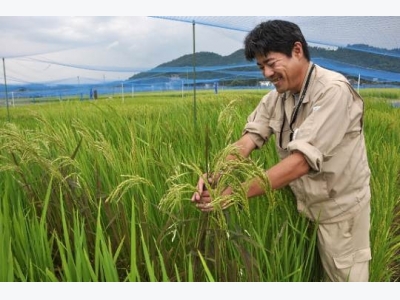EU to lift import restrictions on Japanese agriculture products

The European Union has decided to lift its restrictions on imports of some agricultural produce from 10 prefectures.
The partial lifting, decided by the European Commission, the EU’s executive arm, will take effect on December 1. The other nine prefectures are Akita, Miyagi, Gunma, Ibaraki, Tochigi, Chiba, Iwate, Nagano and Yamagata.
After the March 2011 accident at the Tokyo Electric Power Company Holdings Inc.’s Fukushima No. 1 nuclear plant, the EU required the submission of certificates from radiation checks for some foods from a total of 13 prefectures, which also included Yamanashi, Niigata and Shizuoka.
For Akita, the restrictions will be eliminated for wild vegetables. The prefecture will thus be fully exempted from EU restrictions.
Some foods from the other nine prefectures will also be excluded from the certification requirement.
The move by the EU may prompt countries and regions that also introduced import restrictions on Japanese foods after the nuclear accident, mainly Asian nations, to consider reviewing their measures, analysts said.
Meanwhile, the current certification requirement will remain in place for products including wild vegetables from Yamanashi, Niigata and Shizuoka.
At a press conference on July 6, where a broad accord on an EU-Japan economic partnership agreement for free trade was announced, European Commission President Jean-Claude Juncker said that the import restrictions on some foods from Fukushima and other prefectures would be eased after this year’s summer holidays.
Related news
 Tien Giang seeks measures to boost star apple exports to US
Tien Giang seeks measures to boost star apple exports to US Measures to boost star apple exports to the US were discussed at a conference held in the Mekong Delta province of Tien Giang on November 14.
 Durians just as popular as iPhone X in China
Durians just as popular as iPhone X in China Durians from Malaysia are proving to be just as popular as Apple’s new iPhone X in China, a Malaysian minister claimed.
 Swiss agriculture reduces antibiotics usage by half
Swiss agriculture reduces antibiotics usage by half The use of antibiotics in the Swiss agriculture sector has been cut by almost half over the past decade, claims the Swiss Farmers’ Union (SFU).